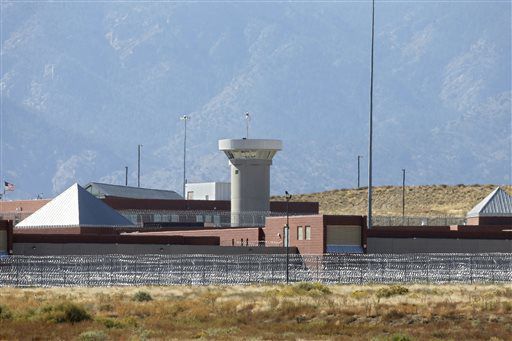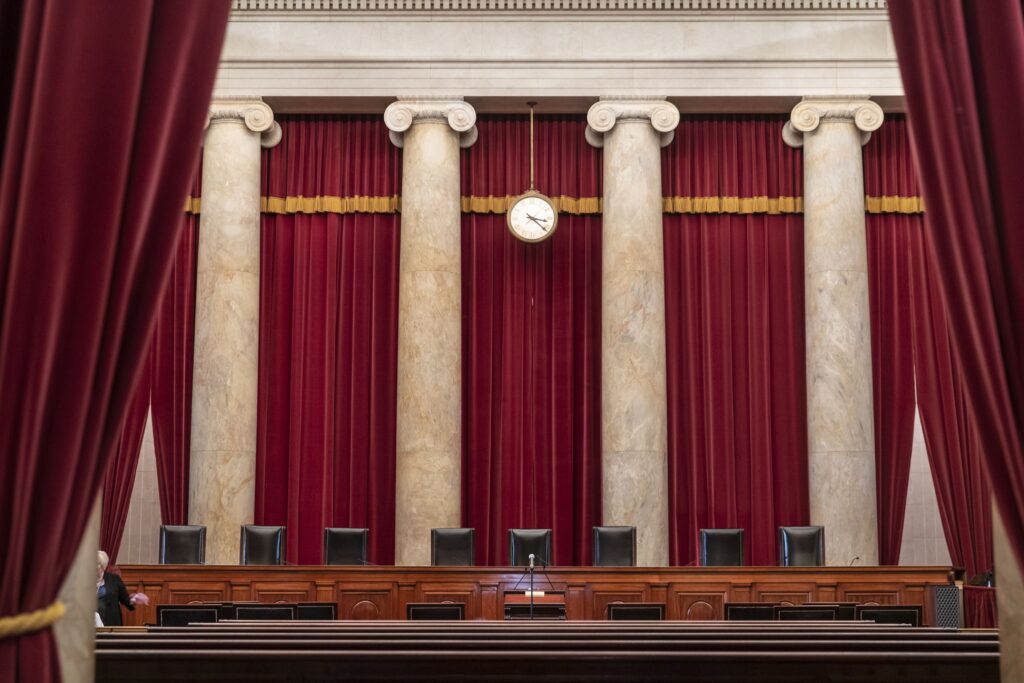Federal judge temporarily prohibits removal of ‘alien enemies’ as detainees challenge Trump proclamation
A federal judge on Monday clarified that she is temporarily halting the government from removing all Venezuelan nationals from Colorado pursuant to a presidential proclamation invoking an 18th Century law against “alien enemies.”
U.S. District Court Judge Charlotte N. Sweeney, a Joe Biden appointee, prohibited the removal of those who would be covered by a proposed class action lawsuit, in addition to the two named petitioners who are currently in immigration custody and are allegedly misidentified as gang members — including one man who fears the gang will kill him if he is deported.
Earlier in the day, Sweeney ordered the government not to remove the two petitioners, identified as D.B.U. and R.M.M., from either Colorado or the United States until she or the Denver-based federal appeals court ruled otherwise.
In response, lawyers for the petitioners filed an emergency motion asking her to clarify whether the freeze on removal applied to all members of the proposed class, as well.
“Undersigned counsel has received credible reports that, as recently as this morning, Venezuelan men at the Denver Contract Detention Facility who had been accused of Tren de Aragua affiliation were rousted from bed and told that they would be leaving the Detention Facility today,” wrote attorneys for the ACLU of Colorado and other organizations. They elaborated that the flight was allegedly canceled and the men remain in Colorado currently.
“Given the likelihood however that, without further clarity from the Court,” the lawyers continued, “members of the proposed class will be systematically removed from the District and unlawfully removed under the Proclamation, Petitioners request an order clarifying that the Court’s prohibition on removal applies to the proposed class as well as named Petitioners.”
Although attorneys for the government have not yet entered the case, the petitioners’ lawyers noted the U.S. Attorney’s Office for Colorado was opposed to the motion.
Sweeney clarified her order will be in effect for 14 days, and she has scheduled a hearing for April 21.
The underlying case, filed on Saturday, challenges President Donald Trump’s invocation of the Alien Enemies Act of 1798 to remove all Venezuelan citizens 14 years or older who are purportedly members of the Tren de Aragua gang. Trump’s March 14 proclamation alleged TdA “continues to invade” the U.S. and “perpetrated irregular warfare.”
The act itself, however, pertains to “a declared war between the United States and any foreign nation or government.”
The two named petitioners, represented by the ACLU of Colorado and other entities, alleged they are Venezuelan nationals detained in Denver who have incorrectly been labeled as members of TdA. One of the men alleged he, in fact, “lives in fear of the gang” because the group killed two of his family members.
They filed under a legal tool known as “habeas corpus,” which challenges a person’s convictions or confinement as unlawful. The U.S. Supreme Court decided, by 5-4 earlier this month, that a habeas action in the place of detention was the required approach.
The petitioners are seeking a temporary restraining order preventing their removal under the Alien Enemies Act and, more broadly, they wish to declare Trump’s application of the act unlawful. On behalf of all proposed class members in Colorado who are subject to Trump’s proclamation, the lawsuit seeks to block the government from deporting them without notice and an opportunity to respond.
The legal action comes amid due process concerns for those targeted for removal. Meanwhile, Trump has defended his policy of unilaterally deporting people to El Salvador, alleging “violent illegal immigrant killers, rapists, gang members, and other sick criminals have been swiftly taken off our streets.”
The same day as Sweeney’s order, the president of El Salvador, during a meeting with Trump, said he would not return a man mistakenly deported and imprisoned as the result of an “administrative error.” Although the Supreme Court ordered the government to “facilitate” the release of Kilmar Abrego Garcia, lawyers for the U.S. Department of Justice have maintained courts cannot compel the government to do anything specific.
The case is D.B.U. et al. v. Trump et al.











